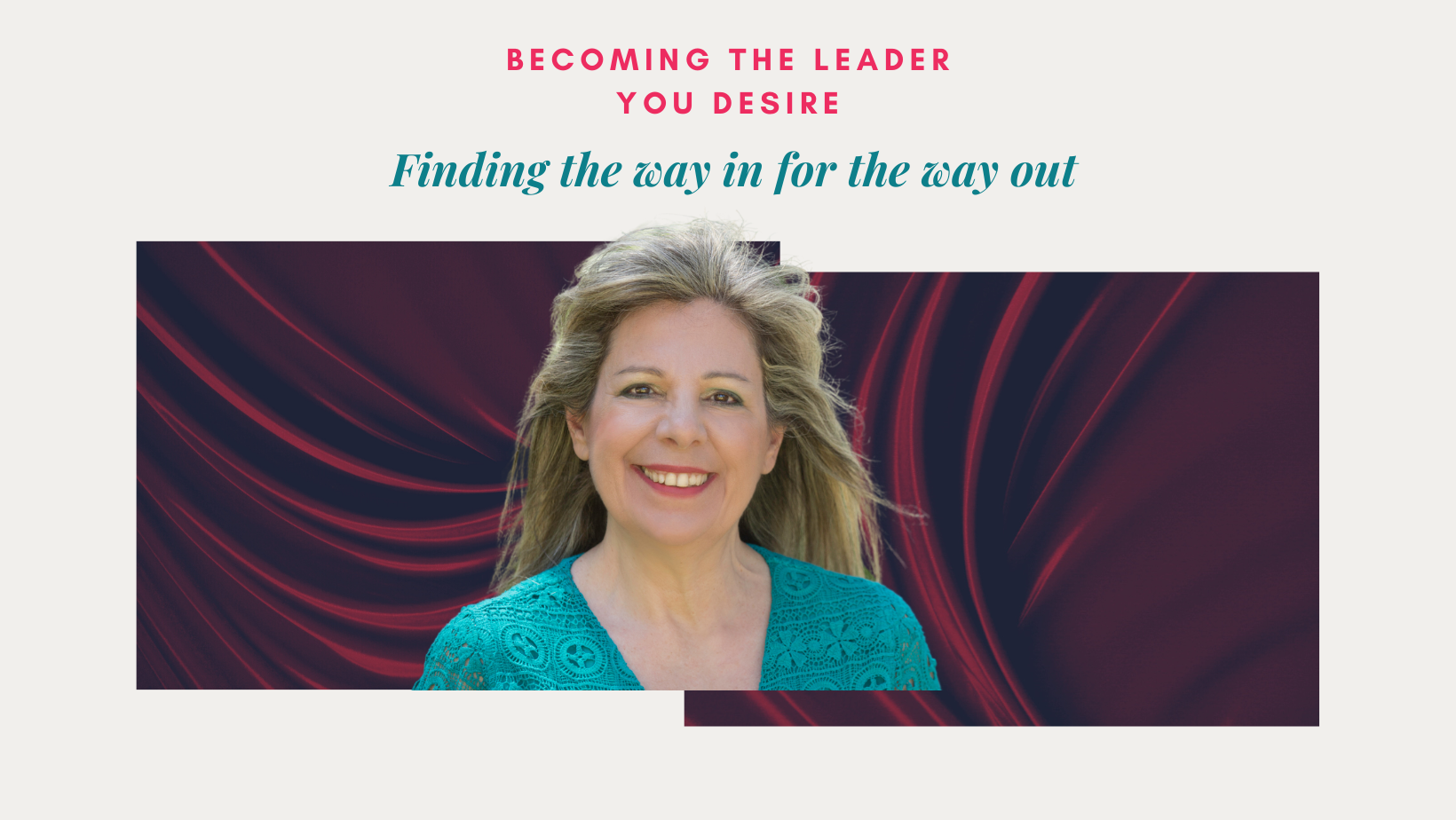For high potential leaders willing and ready to move forward and leave their mark.
According to Marshall Goldsmith, #1 Leadership Thinker and Executive Coach, the executive coaching goal is to support people willing to change to enhance their leadership effectiveness in their professional environment and to create results acknowledged by stakeholders, using a well-defined process.
Through my partnership with Marshall Goldsmith, I am certified and fully eligible to implement their highly effective & successful Stakeholder Centered Coaching Executive Program.
Enhancing Leadership Effectiveness
6-month program
6-month program
10 coaching sessions of 60 min each in a 6-month period
9-month program
9-month program
15 x 1-hour coaching sessions in a 9-month period
12-month program
12-month program
at least 12 X 1-hour coaching sessions in a 12-month period
Leaders of the past:
• Leadership was local and stable
• The leader had the expertise and the options of the follower were very limited
• The leader was the director, the parent or master
• At a larger level – the leader was heroic
Leaders of the future:
- Typically great leaders have great KNOW HOW.
- They are smart, hardworking, experts that love to make decisions and be in control.
- The leaders of today and tomorrow aren’t meant to know everything, that’s why they need their team’s expertise and experience too, so they can be great leaders together.
So leaders need to know WHO can really make that decision best and facilitate that process well.
We transform Visionary Leaders into
positive Change Champions
1:1 Executive Coaching is beneficial for every ambitious leader who:
- Wishes for personal and professional progress
- Wants to step up and claim more challenging positions
- Dreams of a new more authentic beginning
- Is interested in their long-term career and not only their current job
- Wants to enjoy their leadership journey with peace and happiness in their daily life
The ultimate results Leaders will benefit from
My Executive Coaching Program steps up because:
- It measures Leadership Growth.
- Leaders become more self-aware and resilient.
- They discover hidden professional opportunities, overcome challenges and achieve difficult goals.
- They build the foundation for a great relationship with their superiors, subordinates, colleagues, providers, and clients.
- They inspire and lead their team effectively.
- They enjoy a boost of confidence and positive energy which positively impacts the whole team.

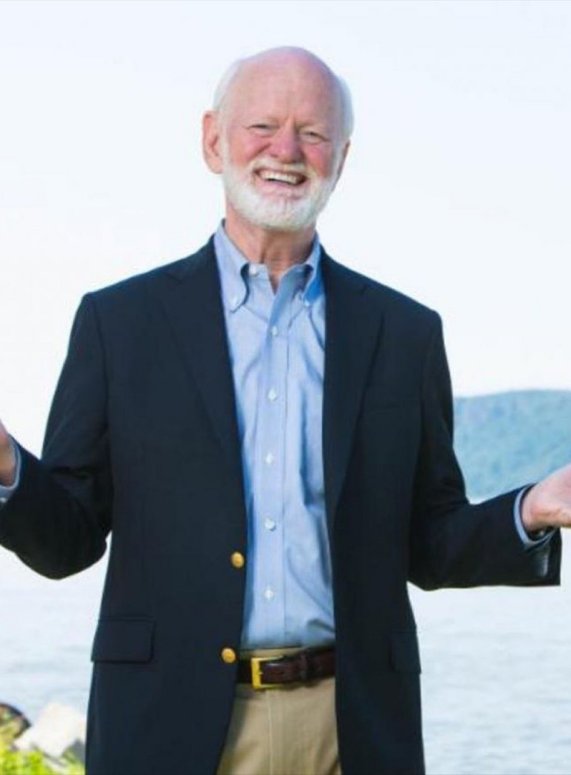
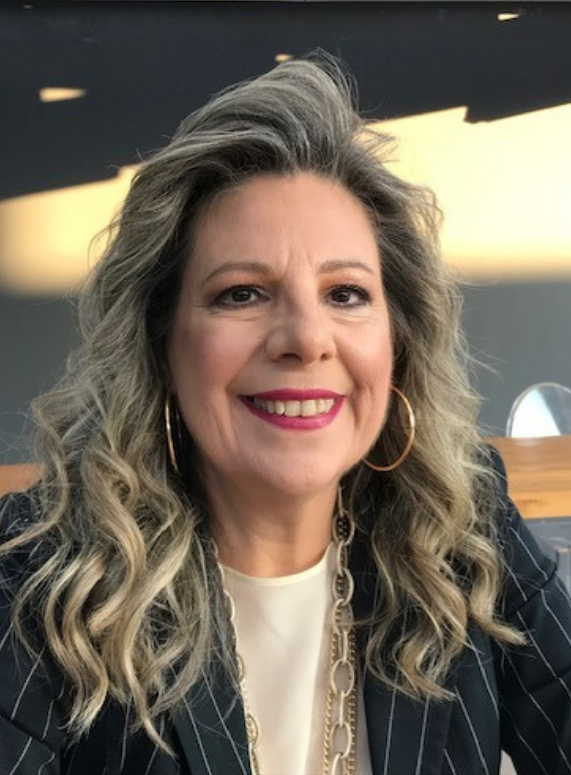
The coaching challenge according to Marshall
“Everyone needs a coach. But, not everyone wants a coach or wants others to know that they need a coach.
One reason we resist coaching is our need for privacy. Some pieces of us are not to be shared with the world. We prefer to keep some of our behavioral deficits to ourselves.
Another reason is that we don’t know that we need to change. We are in denial, convincing ourselves that others need help, not us.
Then there’s the successful person’s unshakable self-sufficiency: we think we can do everything on our own. Quite often we can, of course. But what’s the virtue of saying no to help?
The process of change is hard enough without grabbing all the help we can get.
Although coaching works just fine with the get-organized goals of our New Year’s resolutions, it’s even better, for interpersonal challenges—the be-appreciative, be-caring, be-awake goals that make other people feel better, for knowing us.
I know this because it’s what I work on with my clients.”
Marshall Goldsmith
The Coach Leader according to Barbara
I strongly believe that coaching is not only a tool or process that we use when a specific need arises. Furthermore, Coaching is not only a bunch of skills, such as active listening, effective communication, or questioning.
Coaching is a way of life.
Coaching is a way of creating a better, more rewarding, and authentic life for ourselves and the people who surround us.
The coach as a leader has as their main purpose the development of their team and specifically the holistic development of its members.
Moreover, the “Coach Leader” is inspired by a meaningful purpose not only for themselves but for society as well.
Simultaneously the “Coach Leader” is equipped with very significant competencies which are valuable for a leader to achieve results based on others’ expertise and effectiveness and not only on their own.
Barbara Asimakopoulou

What the leader gets
6-month 1:1 Executive Coaching Program
-10 X 60min 1:1 face to face or web coaching sessions
-Step by step assignments & tasks that build on each other to bring them closer to their goals, measure results and progress, and finally implement changes in their professional life straight away.
-Personal Leadership Signature.
-Barbara’s full support during the entire executive coaching program. (unlimited e-mails, messenger, short phone calls, rescheduling)
-Questionnaires and templates for personal growth, accountability, and tracking.
-Articles, books, and bibliography according to their aspirations or preferences.
-Access to Barbara’s exclusive V.I.P.S. client group for networking and support with like-minded professionals.
9-month 1:1 Executive Coaching Program
-15 X 60min 1:1 face to face or web coaching sessions
-Step by step assignments & tasks that build on each other to bring them closer to their goals, measure results and progress, and finally implement changes in their professional life straight away.
-Personal Leadership Signature.
-Barbara’s full support during the entire executive coaching program. (unlimited e-mails, messenger, short phone calls, rescheduling)
-Questionnaires and templates for personal growth, accountability, and tracking.
-Articles, books, and bibliography according to their aspirations or preferences.
-Access to Barbara’s exclusive V.I.P.S. client group for networking and support with like-minded professionals.
12-month 1:1 Executive Coaching Program
12-month commitment with at least 12 X 60 min coaching sessions
Barbara’s full support of the leader during the entire program
Barbara’s involvement to engage the stakeholders in the leader’s change process in a well-structured 7-phase process based on Marshall Goldsmith Stakeholder Centered Coaching Method.
-Marshall Goldsmith 360 assessment Global Leader of the future (GLOF), annual and quarterly reviews.
-Full leader’s self-awareness in 72 leadership competencies.
-Articles, books, and bibliography according to their aspirations or preferences.
-Access to Barbara’s exclusive V.I.P.S. client group with like-minded professionals.
My 8-step methodology for 1-1
Based On
Marshall Goldsmith Stakeholders Centered Coaching & Global Leader of the Future
1. Building the foundation-Leader’s profile tests & feedback from their environment
2. Setting a personal and professional vision
3. Setting professional goals
4. Determining Leadership growth areas
5. Revealing internal and external obstacles
6. Involving stakeholders in the leader’s change process
7. Setting an action plan
8. Reviewing change & growth progress
“The leader of the past knew how to TELL. The leader of the future will know how to ASK”
Peter Drucker
![]()
Marshall Goldsmith’s Stakeholder Centered Coaching Tool
A unique 7-phase well-structured highly effective and successful system
This system is unique as:
- It guarantees measurable results for executive leaders and the organizations they work for
- The payment is based on the leadership effectiveness growth of your leaders
- The coaching program is a real-time on the job process that is highly effective and time-efficient
Phase 1 Coachability Review
Phase 2-4 Selecting Leadership Growth Areas
Phase 5 Leading Change Involving Stakeholders
Phase 6 Leadership Growth Progress Reviews
Phase 7 Leader as a Coach
A unique 360 assessment tool for current and potential leaders by World’s # 1 Leadership Thinker, Marshall Goldsmith, well researched and focused on actual leadership needs.
The GLOF is a unique and valuable assessment tool based on leadership theories-views relevant for leaders in a globalizing business environment derived from 18 Global Thought Leaders (recommended from Fortune 100 CEO), based on broad international research involving >300 International Business Executives (current and high-potential leaders from 200 Organizations on 6 Continents).
The 15 leadership competencies that the research concluded, measure what is imperative for effective leaders in a global business environment and the organizational cultures they want to develop.
Due to the large geographic and industry spread of the research, every leader in every organization in every industry on every level can recognize themselves in this ‘global mirror’.
*This is an additional tool that can be used as part of my coaching programs.

The Winning Team of Executive Coaches

Barbara Asimakopoulou, MBA, PCC, Greece
#1 Coach in Athens 2021, ICF Professional Certified Coach, Marshall Goldsmith Certified Leadership Coach, Team Coach, ICF approved Coaching Training Program Author & Provider, HRE Founder

Kathryn Pope, PCC, UK
Executive Coach, Team Coach, Coach Supervisor, Marshall Goldsmith Leadership Coach, Member of the Academic Board of our ICF approved Professional Coaching Diploma.
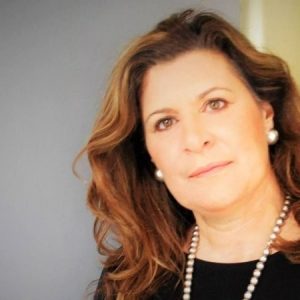
Irene Nikolaidou, PCC, Greece
ICF Professional Certified Coach, Executive & Business Coach, Board Coach & Coach Supervisor, Team Coach, Mentor Coach on CSTP our ICF approved Professional Coaching Diploma.
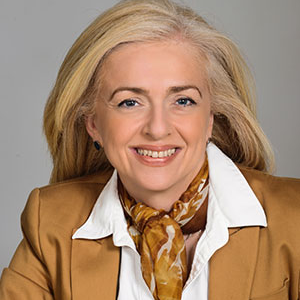
Anna Mamalaki ACC, Greece
Associate Certified Coach by ICF, Organizational Development and Transformation<br />consulting HR advisor and executive coach. Recognized as one of the global<br />experts in the field of culture transformation.
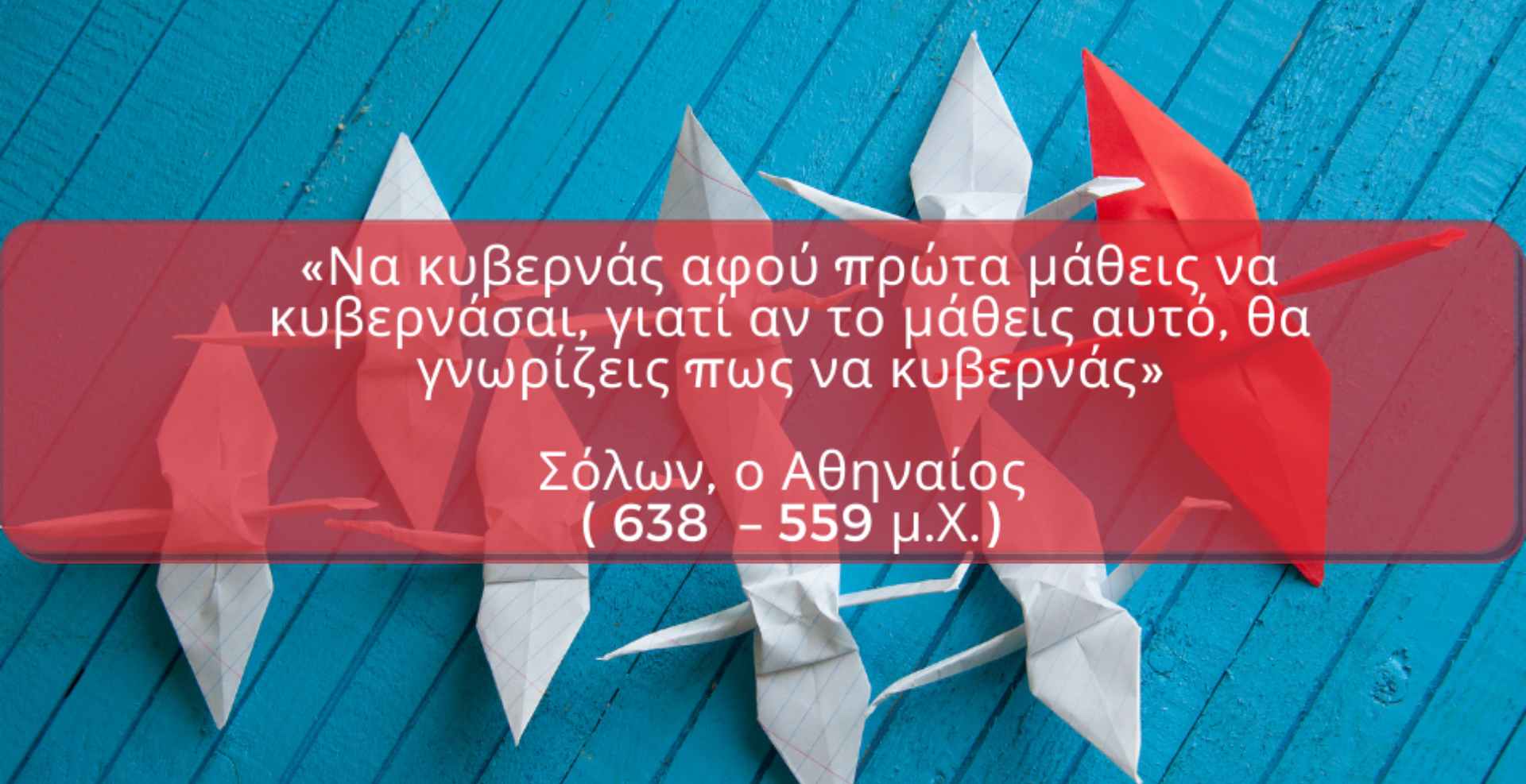
FAQ.
What is the difference between Executive & Life Coaching?
A credentialed coach ACC, PCC, MCC by ICF is eligible to coach anyone despite their professional experience and academic background. They are eligible because they are trained from a coaching program approved by the leading professional body “International Coaching Federation” and they are following its highest standard of the art and science of coaching and a meticulous Code of Ethics.
A life coach mainly coaches people on issues such as family, relationships, health, daily life.
An executive coach mainly coaches people on career, professional development, and leadership issues.
What is the commitment of the executive among the coaching sessions?
Among coaching sessions, the leader will enjoy Barbara’s full support during the entire executive coaching program. (unlimited e-mails, messenger, short phone calls, rescheduling).
They may have to complete some questionnaires and templates for personal growth, accountability, and tracking.
They may also choose to read some articles or books according to their aspirations or preferences.
The more time and effort, they put into practicing the new beneficial behavior, the more positive outcomes they will enjoy, and their ROI will be huge!
How can the effectiveness of Executive Coaching be mesured?
In order to answer the ROI question, we must first identify the behaviors for change during the coaching engagement.
The behavior change itself is the value coaching delivers.
Successful behavior change is a leading indicator of financial value. Successfully measuring the lagging indicators of performance improvement requires tracking the leading indicators of behavior change first.
In my programs, we define first performance indicators and then we engage the environment of the executive in the evaluation of the performance of the new behavior which the executive agrees to practice and finally to acquire.
I strongly believe that the executive must inform its environment about the change is going to commit and the positive outcomes he/she wishes to earn.
This is the only way to have the support and recognition at the end.
I practice a very structured method to identify the leadership and other behavioral areas to be improved, to evaluate and follow up on Leaders’ performance and desired outcomes.
How can the confidentiallity between the coach and the executive be ensured;
Any ICF coach must demonstrate ethical practice: understands and consistently applies coaching ethics and standards. ICF coaches follow strictly the highest standard of the 8 competencies and the ethical behavior of ICF.
ICF Professionals who accept the Code of Ethics strive to be ethical, even when doing so involves making difficult decisions or acting courageously.
According to the ICF Code of Ethics
As an ICF Professional, I:
3. Maintain the strictest levels of confidentiality with all parties as agreed upon. I am aware of and agree to comply with all applicable laws that pertain to personal data and communications.
4. Have a clear understanding of how information is exchanged among all parties involved during all coaching interactions.
7. Maintain, store and dispose of any records, including electronic files and communications, created during my professional interactions in a manner that promotes confidentiality, security, privacy and complies with any applicable laws and agreements. Furthermore, I seek to make proper use of emerging and growing technological developments that are being used in coaching services (technology-assisted coaching services) and be aware of how various ethical standards apply to them
How is coaching distinct from other professions?
Professional coaching focuses on setting goals, creating outcomes, and managing personal change. Sometimes it’s helpful to understand coaching by distinguishing it from other personal or organizational support professions.
- Therapy: Therapy deals with healing pain, dysfunction, and conflict within an individual or in relationships. The focus is often on resolving difficulties arising from the past that hamper an individual’s emotional functioning in the present. Coaching, on the other hand, supports personal and professional growth based on self-initiated change in pursuit of specific actionable outcomes. These outcomes are linked to personal or professional success. Coaching is future-focused. While positive feelings/emotions may be a natural outcome of coaching, the primary focus is on creating actionable strategies for achieving specific goals in one’s work or personal life.
- Consulting: Individuals or organizations retain consultants for their expertise. While consulting approaches vary widely, the assumption is the consultant will diagnose problems and prescribe and, sometimes, implement solutions. With coaching, the assumption is that individuals or teams are capable of generating their own solutions, with the coach supplying supportive, discovery-based approaches and frameworks.
- Mentoring: A mentor is an expert who provides wisdom and guidance based on his or her own experience. Mentoring may include advising, counseling and coaching. The coaching process does not include advising or counseling and focuses instead on individuals or groups setting and reaching their own objectives.
- Training: Training programs are based on objectives set out by the trainer or instructor. Though objectives are clarified in the coaching process, they are set by the individual or team being coached, with guidance provided by the coach. Training also assumes a linear learning path that coincides with an established curriculum. Coaching is less linear without a set curriculum.
- Athletic Development: Though sports metaphors are often used, professional coaching is different from sports coaching. The athletic coach is often seen as an expert who guides and directs the behavior of individuals or teams based on his or her greater experience and knowledge. Professional coaches possess these qualities, but their experience and knowledge of the individual or team determine the direction. The focus is on identifying opportunities for development based on individual strengths and capabilities.
ICF Code of Ethics-Why an ICF Professional coach is an ethical coach?
1. INTRODUCTION
The ICF Code of Ethics describes the core values of the International Coaching Federation (ICF Core Values), and ethical principles, and ethical standards of behavior for all ICF Professionals (see definitions). Meeting these ICF ethical standards of behavior is the first of the ICF core coaching competencies (ICF Core Competencies). That is “Demonstrates ethical practice: understands and consistently applies coaching ethics and standards.”
The ICF Code of Ethics serves to uphold the integrity of ICF and the global coaching profession by:
• Setting standards of conduct consistent with ICF core values and ethical principles.
• Guiding ethical reflection, education, and decision-making
• Adjudicating and preserving ICF coach standards through the ICF Ethical Conduct Review (ECR) process
• Providing the basis for ICF ethics training in ICF-accredited programs
The ICF Code of Ethics applies when ICF Professionals represent themselves as such, in any kind of coaching-related interaction. This is regardless of whether a coaching Relationship (see definitions) has been established. This Code articulates the ethical obligations of ICF Professionals who are acting in their different roles as coach, coach supervisor, mentor coach, trainer or student coach-in-training, or serving in an ICF Leadership role, as well as Support Personnel (see definitions).
Although the Ethical Conduct Review (ECR) process is only applicable to ICF Professionals, as is the Pledge, the ICF Staff are also committed to ethical conduct and the Core Values and Ethical Principles that underpin this ICF code of ethics.
The challenge of working ethically means that members will inevitably encounter situations that require responses to unexpected issues, resolution of dilemmas, and solutions to problems.
This Code of Ethics is intended to assist those persons subject to the Code by directing them to the variety of ethical factors that may need to be taken into consideration and helping to identify alternative ways of approaching ethical behavior.
ICF Professionals who accept the Code of Ethics strive to be ethical, even when doing so involves making difficult decisions or acting courageously.
2. KEY DEFINITIONS
• “Client”—the individual or team/group being coached, the coach being mentored or supervised, or the coach or the student coach being trained.
• “Coaching”- partnering with Clients in a thought-provoking and creative process that inspires them to maximize their personal and professional potential.
• “Coaching Relationship”—a relationship that is established by the ICF Professional and the Client(s)/Sponsor(s) under an agreement or a contract that defines the responsibilities and expectations of each party.
• “Code”—ICF Code of Ethics
• “Confidentiality”—protection of any information obtained around the coaching engagement unless consent to release is given.
• “Conflict of Interest”—a situation in which an ICF Professional is involved in multiple interests where serving one interest could work against or be in conflict with another. This could be financial, personal, or otherwise.
• “Equality”—a situation in which all people experience inclusion, access to resources and opportunity, regardless of their race, ethnicity, national origin, color, gender, sexual orientation, gender identity, age, religion, immigration status, mental or physical disability, and other areas of human difference.
• “ICF Professional”—individuals who represent themselves as an ICF Member or ICF Credential-holder, in roles including but not limited to Coach, Coach Supervisor, Mentor Coach, Coach Trainer, and Student of Coaching
• “ICF Staff”— the ICF support personnel who are contracted by the managing company that provides professional management and administrative services on behalf of ICF.
• “Internal Coach”— an individual who is employed within an organization and coaches either part-time or full-time the employees of that organization.
• “Sponsor”—the entity (including its representatives) paying for and/or arranging or defining the coaching services to be provided.
• “Support Personnel”—the people who work for ICF Professionals in support of their Clients.
• “Systemic equality”—gender equality, race equality, and other forms of equality that are institutionalized in the ethics, core values, policies, structures, and cultures of communities, organizations, nations, and society.
3. ICF CORE VALUES AND ETHICAL PRINCIPLES
The ICF Code of Ethics is based on the ICF Core Values (link) and the actions that flow from them. All values are equally important and support one another. These values are aspirational and should be used as a way to understand and interpret the standards. All ICF Professionals are expected to showcase and propagate these Values in all their interactions.
4. ETHICAL STANDARDS
The following ethical standards are applied to the professional activities of ICF Professionals:
Section I – Responsibility to clients
As an ICF Professional, I:
1. Explain and ensure that, prior to or at the initial meeting, my coaching Client(s) and Sponsor(s) understand the nature and potential value of coaching, the nature and limits of confidentiality, financial arrangements, and any other terms of the coaching agreement.
2. Create an agreement/contract regarding the roles, responsibilities and rights of all parties involved with my Client(s) and Sponsor(s) prior to the commencement of services.
3. Maintain the strictest levels of confidentiality with all parties as agreed upon. I am aware of and agree to comply with all applicable laws that pertain to personal data and communications.
4. Have a clear understanding about how information is exchanged among all parties involved during all coaching interactions.
5. Have a clear understanding with both Clients and Sponsors or interested parties about the conditions under which information will not be kept confidential (e.g., illegal activity, if required by law, pursuant to valid court order or subpoena; imminent or likely risk of danger to self or to others; etc.). Where I reasonably believe one of the above circumstances is applicable, I may need to inform appropriate authorities.
6. When working as an Internal Coach, manage conflicts of interest or potential conflicts of interest with my coaching Clients and Sponsor(s) through coaching agreement(s) and ongoing dialogue. This should include addressing organizational roles, responsibilities, relationships, records, confidentiality and other reporting requirements.
7. Maintain, store and dispose of any records, including electronic files and communications, created during my professional interactions in a manner that promotes confidentiality, security and privacy and complies with any applicable laws and agreements. Furthermore, I seek to make proper use of emerging and growing technological developments that are being used in coaching services (technology-assisted coaching services) and be aware how various ethical standards apply to them.
8. Remain alert to indications that there might be a shift in the value received from the coaching relationship. If so, make a change in the relationship or encourage the Client(s)/Sponsor(s) to seek another coach, seek another professional or use a different resource.
9. Respect all parties’ right to terminate the coaching relationship at any point for any reason during the coaching process subject to the provisions of the agreement.
10. Am sensitive to the implications of having multiple contracts and relationships with the same Client(s) and Sponsor(s) at the same time in order to avoid conflict of interest situations.
11. Am aware of and actively manage any power or status difference between the Client and me that may be caused by cultural, relational, psychological or contextual issues.
12. Disclose to my Clients the potential receipt of compensation, and other benefits I may receive for referring my Clients to third parties.
13. Assure consistent quality of coaching regardless of the amount or form of agreed compensation in any relationship.
Section II – Responsibility to practice and performance
As an ICF Professional, I:
14. Adhere to the ICF Code of Ethics in all my interactions. When I become aware of a possible breach of the Code by myself or I recognize unethical behavior in another ICF Professional, I respectfully raise the matter with those involved. If this does not resolve the matter, I refer it to a formal authority (e.g., ICF Global) for resolution.
15. Require adherence to the ICF Code of Ethics by all Support Personnel.
16. Commit to excellence through continued personal, professional and ethical development.
17. Recognize my personal limitations or circumstances that may impair, conflict with or interfere with my coaching performance or my professional coaching relationships. I will reach out for support to determine the action to be taken and, if necessary, promptly seek relevant professional guidance. This may include suspending or terminating my coaching relationship(s).
18. Resolve any conflict of interest or potential conflict of interest by working through the issue with relevant parties, seeking professional assistance, or suspending temporarily or ending the professional relationship.
19. Maintain the privacy of ICF Members and use the ICF Member contact information (email addresses, telephone numbers, and so on) only as authorized by ICF or the ICF Member.
Section III – Responsibility to professionalism
As an ICF Professional, I:
20. Identify accurately my coaching qualifications, my level of coaching competency, expertise, experience, training, certifications and ICF Credentials.
21. Make verbal and written statements that are true and accurate about what I offer as an ICF Professional, what is offered by ICF, the coaching profession, and the potential value of coaching.
22. Communicate and create awareness with those who need to be informed of the ethical responsibilities established by this Code.
23. Hold responsibility for being aware of and setting clear, appropriate and culturally sensitive boundaries that govern interactions, physical or otherwise.
24. Do not participate in any sexual or romantic engagement with Client(s) or Sponsor(s). I will be ever mindful of the level of intimacy appropriate for the relationship. I take the appropriate action to address the issue or cancel the engagement.
Section IV – Responsibility to society
As an ICF Professional, I:
25. Avoid discrimination by maintaining fairness and equality in all activities and operations, while respecting local rules and cultural practices. This includes, but is not limited to, discrimination on the basis of age, race, gender expression, ethnicity, sexual orientation, religion, national origin, disability or military status.
26. Recognize and honor the contributions and intellectual property of others, only claiming ownership of my own material. I understand that a breach of this standard may subject me to legal remedy by a third party.
27. Am honest and work within recognized scientific standards, applicable subject guidelines, and boundaries of my competence when conducting and reporting research.
28. Am aware of my and my clients’ impact on society. I adhere to the philosophy of “doing good,” versus “avoiding bad.”
5. THE PLEDGE OF ETHICS OF THE ICF PROFESSIONAL:
As an ICF Professional, in accordance with the Standards of the ICF Code of Ethics, I acknowledge and agree to fulfill my ethical and legal obligations to my coaching Client(s), Sponsor(s), colleagues and to the public at large.
If I breach any part of the ICF Code of Ethics, I agree that the ICF in its sole discretion may hold me accountable for so doing. I further agree that my accountability to the ICF for any breach may include sanctions, such as mandatory additional coach training or other education or loss of my ICF Membership and/or my ICF Credentials.
For more information on the Ethical Conduct Review Process including the links to file a complaint, please click the link below.
https://coachingfederation.org/ethics/ethical-conduct-review-processAdopted by the ICF Global Board of Directors September 2019
